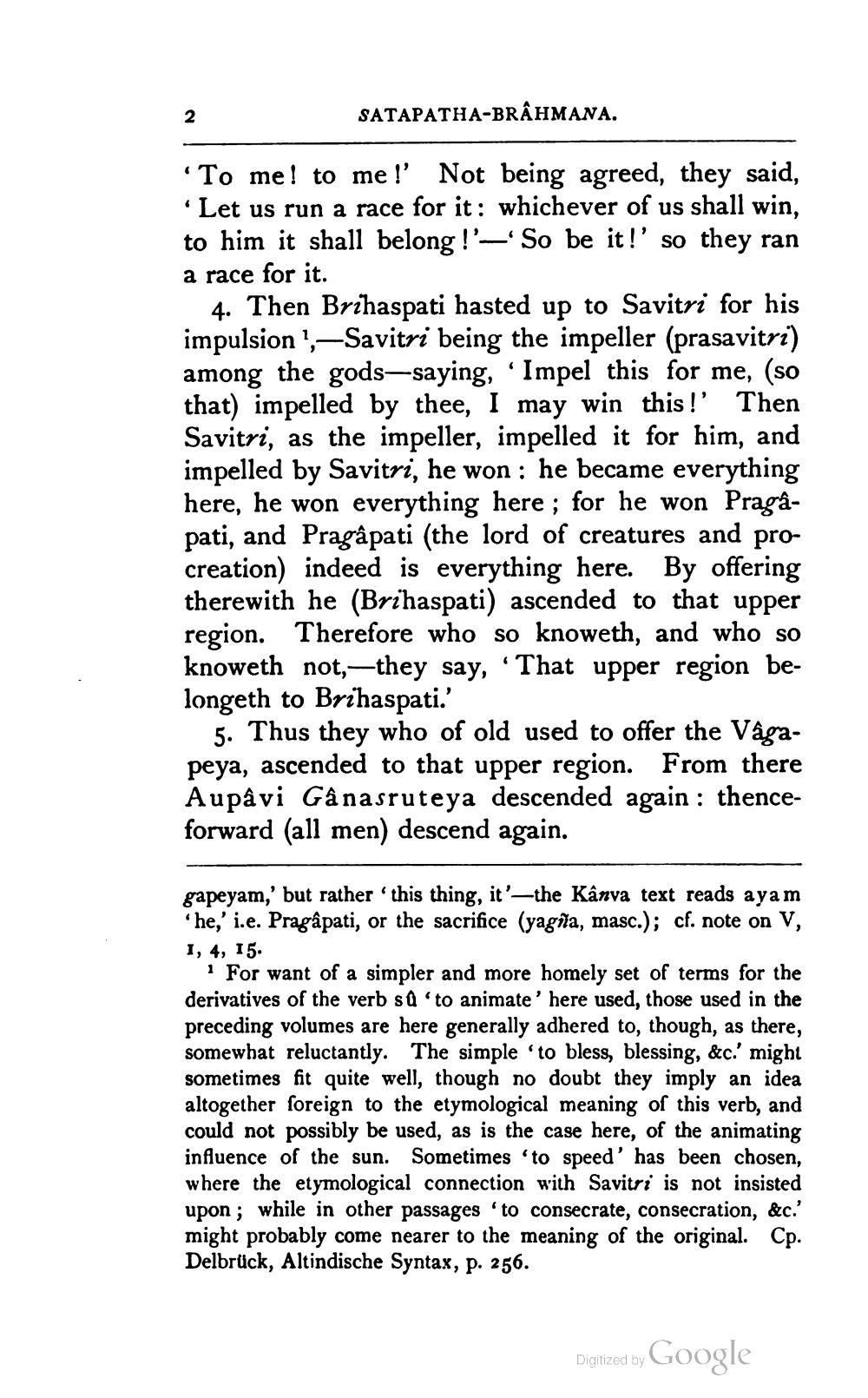________________
SATAPATHA-BRAHMANA.
"To me! to me!' Not being agreed, they said, *Let us run a race for it: whichever of us shall win, to him it shall belong !'- So be it!' so they ran a race for it.
4. Then Brihaspati hasted up to Savitri for his impulsion !,—Savitri being the impeller (prasavitri) among the gods-saying, “Impel this for me, (so that) impelled by thee, I may win this !' Then Savitri, as the impeller, impelled it for him, and impelled by Savitri, he won : he became everything here, he won everything here ; for he won Pragapati, and Pragâpati (the lord of creatures and procreation) indeed is everything here. By offering therewith he (Brihaspati) ascended to that upper region. Therefore who so knoweth, and who so knoweth not,—they say, 'That upper region belongeth to Brihaspati.'
5. Thus they who of old used to offer the Vagapeya, ascended to that upper region. From there Aupåvi Gânasruteya descended again : thenceforward (all men) descend again.
gapeyam,' but rather this thing, it'—the Kânva text reads ayam 'he,' i.e. Pragâpati, or the sacrifice (yagña, masc.); cf. note on V, I, 4, 15.
For want of a simpler and more homely set of terms for the derivatives of the verb sa 'to animate' here used, those used in the preceding volumes are here generally adhered to, though, as there, somewhat reluctantly. The simple to bless, blessing, &c.' might sometimes fit quite well, though no doubt they imply an idea altogether foreign to the etymological meaning of this verb, and could not possibly be used, as is the case here, of the animating influence of the sun. Sometimes 'to speed' has been chosen, where the etymological connection with Savitri is not insisted upon; while in other passages to consecrate, consecration, &c.' might probably come nearer to the meaning of the original. Cp. Delbrück, Altindische Syntax, p. 256.
Digized by Google




